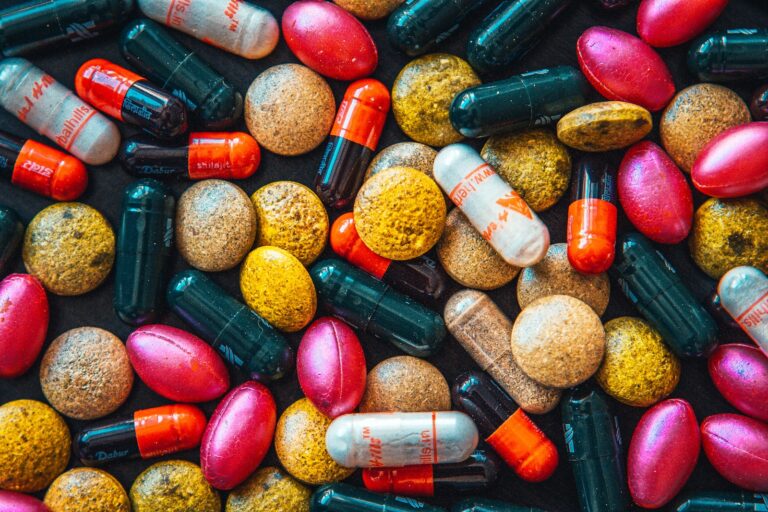There are many vitamins and supplements that can help increase sperm count, improve sperm quality and promote fertility. These include vitamin C, Vitamin E, Coenzyme Q10, Zinc and L-Carnitine.
Folic acid is another essential nutrient that improves sperm count and DNA stability in semen. However, most people don’t absorb folic acid well so it’s better to take it as methyl folate.
Vitamin C
Vitamin C is an antioxidant that has been found to reduce oxidative stress in sperm, improving sperm count and morphology. It can be found in citrus fruits, berries, tomatoes and leafy greens.
Vitamin E is a fat-soluble antioxidant that protects the sperm from free radical damage. It has been shown to increase sperm count, motility and morphology in men with low fertilization rates. Vitamin E can be found in sunflower seeds, fortified cereals, nuts, avocados, kale and broccoli.
L-Carnitine is a natural metabolite of methionine, and it has been shown to improve sperm count and motility. It can be found in poultry, red meat and fish. It is also available as a supplement. It increases the production of acetylcholine and reduces oxidative stress. It may also be found in fenugreek extract supplements.
Vitamin E
Vitamin E is an antioxidant that helps protect cells from damage, including sperm. It can be found in foods such as sunflower seeds, fortified cereals, almonds, hazelnuts, spinach, avocado and kale. It can also be taken as a supplement.
L-carnitine is an amino acid that can help boost sperm count and motility. It also reduces oxidative stress in the body. Studies show that taking L-carnitine for 3 to 6 months before trying to conceive improves sperm morphology and motility.
Coenzyme Q10 is an enzyme that can help increase sperm count and improve motility. It is found in foods such as bell peppers, tomatoes and cruciferous vegetables. Studies show that taking CoQ10 for two months before trying to conceive can improve semen parameters and increase sperm quality.
Coenzyme Q10
Coenzyme Q10 is a powerful antioxidant that helps protect your body from oxidative stress. It can also increase sperm count and improve motility by reducing sperm DNA damage. You can get this vitamin from foods like spinach, broccoli, and kale or by taking supplements such as our 100 mg CoQ10 vitamins that are dairy, soy, and starch free.
A study found that men with low sperm counts had lower levels of CoQ10 in their seminal fluid. However, after six months of taking CoQ10 supplements they experienced a 53% increase in sperm count and improved sperm concentration. Vitamin C and vitamin E have also been shown to improve sperm health in terms of morphology, motility, and concentration. These are all important factors in achieving pregnancy.
Zinc
Zinc is important for sperm production, and studies have shown that zinc supplements can increase sperm count and improve sperm morphology. Zinc can be found in many foods, including oysters, beef, pumpkin seeds, and spinach.
Vitamin C is another antioxidant that helps with sperm health. It reduces oxidative stress on sperm cells, which can lead to DNA damage and other problems. You can get vitamin C in foods such as bell peppers, strawberries, tomatoes, and cruciferous vegetables.
Folic acid is also essential for sperm health. Studies have shown that consuming folate-rich foods like oranges, beans, peanuts, sweet corn, and avocado can help increase sperm count and quality. Folic acid can be found in foods such as oat bran, lentils, asparagus, and soybeans. Folic acid is also available in supplements.
L-Carnitine
L-Carnitine is a vitamin that is known for helping the body convert fat into energy. It has also been shown to help improve sperm count and sperm motility. In one study, L-Carnitine improved sperm count by nearly 25% and increased sperm motility by 58%.
Other studies have shown that L-Carnitine can help reduce oxidative stress in the testes, increase semen sperm concentration and motility, and improve epididymal function. It can also improve sperm metabolism, sperm apoptosis, and the integrity of sperm DNA.
A randomized double-blind placebo-controlled trial found that oral carnitine and L-acetylcarnitine significantly improved sperm motility in men with abnormal semen parameters. Eight pregnancies were reported in the carnitine arm, while none occurred in the placebo arm. Interestingly, the researchers in this study also found that Coenzyme Q10, which has been linked to heart health, was also associated with improved semen parameters.
Vitamin B12
Vitamin B12 has been shown to decrease oxidative stress in sperm and enhance sperm count. Increased levels of oxidative stress cause sperm cells to break down. Vitamin B12 supplements are thought to prevent this breakdown, improving sperm count and quality.
Vitamin E is another antioxidant that protects sperm from damage. You can find vitamin E in foods such as nuts, seeds, avocados, and vegetable oils. It is also available as a supplement.
Folic acid is an important B-vitamin necessary for DNA synthesis and cell division. Studies have found that low folic acid levels are associated with lower sperm counts and motility. You can find folic acid in greens such as spinach and kale. You can also take a folic acid supplement.
Folic Acid
Folic acid is an essential nutrient for fetal development, DNA maintenance, and protein synthesis. It is found naturally in foods such as spinach, liver, and asparagus and is fortified in breads, flours, pastas, and other grain products in the United States. Folic acid is also available as a supplement in the form of methylfolate, or 5-MTHF folate.
It has been found to increase sperm count, improve semen quality, and reduce DNA damage in sperm. Folic acid can be combined with zinc supplements to enhance sperm health. Vitamin C and selenium are also beneficial for sperm health. Other lifestyle factors that can affect male fertility include reducing alcohol consumption, smoking, and maintaining a healthy weight. Consult with a doctor to determine the cause of low sperm count and treatment options.
See Also:



